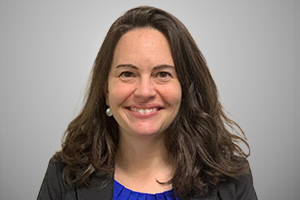This website uses cookies so that we can provide you with the best user experience possible. Cookie information is stored in your browser and performs functions such as recognizing you when you return to our website and helping our team to understand which sections of the website you find most interesting and useful.
Technical assistance (TA) is a key component for use by federal, state, and local governments to build capacity to improve student access to education opportunities. The National Comprehensive Center (NCC), a federally funded TA center directed by Westat, offers capacity-building support, services, and products to Regional Comprehensive Centers and states. It engages in a wide range of work to promote equity, including the Native Education Collaborative (NEC) and a 50-State Equity Policy Scan.
Native Education Collaborative (NEC)
The National Comprehensive Center received supplemental funding from the U.S. Department of Education’s Office of Indian Education (OIE) to establish the NEC. The NEC develops and disseminates resources to help build states’ capacity to more comprehensively support Native education through collaboration with districts and tribes. The NEC’s team, composed of Native education experts and managed by Westat’s Senior Study Director Amy Bitterman, developed an Idea Bank of resources, several toolkits (Tribal Consultation Toolkit and Learning and Programming Toolkit for SEAs, LEAs, and Tribes), and an action framework called Circles of Reflection.

Circles of Reflection is a series of guided discussions that take place with, first, the state education agency (SEA), and then districts and tribes to contribute their perspectives. The process is designed to reveal what states and localities are doing or not doing to ensure high-quality learning experiences for Native students; jointly determine priorities; and as a group, guide the creation and implementation of plans to improve Native education.
In 2020-21, the NEC conducted a pilot of Circles of Reflection with 4 states—Idaho, North Carolina, Oklahoma, and Washington. Results from the pilot evaluation include an increase in the SEA’s knowledge and awareness, and improved collaboration and communication.
For more information about Circles of Reflection, view the 2022 webinar hosted by Westat: Asking the Experts: Circles of Reflection (YouTube video). It highlights a panel of Native educators from Oklahoma who shared their experiences participating in the process.
50-State Equity Policy Scan
The National Comprehensive Center also launched a project to produce a 50-state equity policy scan, in collaboration with the Education Commission of the States (ECS), to describe the range and status of educational equity policy at the state level. The team will consider the ways in which states define and speak to racial and gender equity, special education, multilingual learners, and more, as well as states’ efforts to address equitable access to high-quality instruction, educators, and learning environments through policy efforts. The intent is to offer a descriptive (not evaluative) analysis that provides a baseline understanding of how equity is prioritized nationally and serves as a point of reference for deeper conversations about education equity. The scan will inform TA supports that target and enhance equity priorities across states.

To conduct the 50-state scan, the NCC and ECS are employing the National Academies of Sciences, Engineering, and Medicine’s (NASEM’s) Monitoring Educational Equity report, which provides an evidence base and framework to measure students’ access to opportunities, across 7 domains and corresponding equity indicators. The Westat NCC team is conducting a pilot scan in 5 test states using this framework. Clarissa McKithen, M.A., the Westat project manager, shared, “The team will also engage a panel of experts in the areas of educational equity, policy, measurement, and capacity building to gather input on the process itself as well as on employing, communicating, and disseminating the scan and resulting products.”
Focus Areas
Education Educator Effectiveness Learning AccelerationCapabilities
Equity Technical Assistance-
Perspective
Teacher Apprenticeships Strengthen the WorkforceJuly 2024
Many state education agencies (SEAs) are addressing teacher shortages by creating and expanding alternative paths to the teaching profession. One fast-growing option is teacher apprenticeships,…
-
Expert Interview
Passport to Careers: Aiding Foster and Homeless Young AdultsJuly 2024
The Passport to Careers program in Washington State supports former foster youth and homeless youth unaccompanied by a parent or guardian in achieving their college…
-
Perspective
Highlights of Westat at AAPOR 2024May 2024
We’ve returned from the 79th Annual American Association for Public Opinion Research (AAPOR) Conference, held May 15-17 in Atlanta, where we caught up with colleagues…

